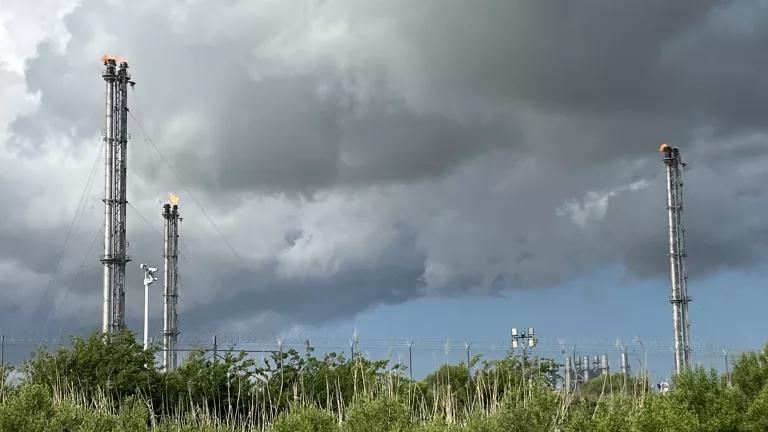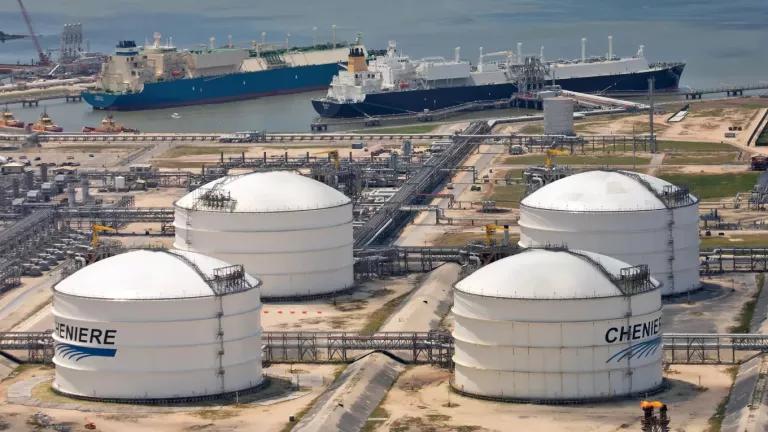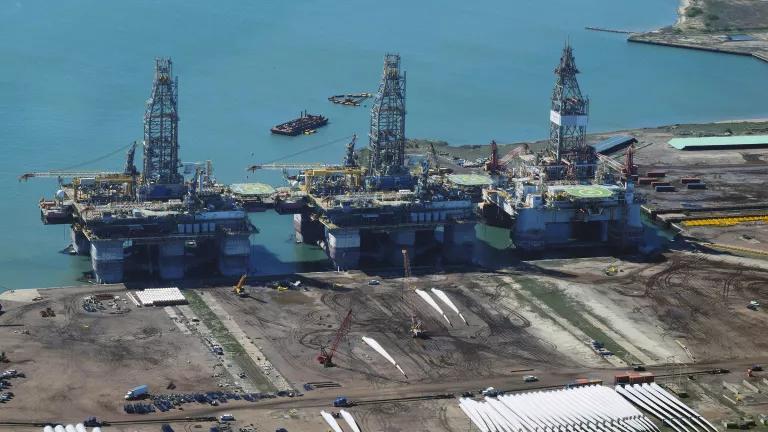News flash. A Texas judge just put a hold on construction of a portion of the southern section of the controversial Keystone XL tar sands pipeline in response to a landowner’s pushback against eminent domain claims on his land. Michael Bishop has been given a temporary restraining order to prevent pipeline work on his Nacogdoches County property. Interestingly, one of the cases hinges on a question NRDC has posed previously… Is bitumen, or tar sands oil, the same as crude oil. It seems like a silly question, but in fact, the industry has spoken out of both sides of its mouth on the issue.
Normally when asked about this, usually associated with safety issues, the industry is adamant that tar sands oil and especially diluted bitumen are no different from crude oil. This despite the fact that bitumen does not behave like what we normally think of as oil: it is mined or steamed out of the ground, is the consistency of peanut butter, has different chemical properties and won’t even move through a pipeline without a lot of pressure and chemicals to thin it out. If you want to go deep, we did a report on the issue.
But, they told the IRS something very different. I covered this in a September Switchboard post:
…As NRDC and Oil Change International outlined in Irrational Exemption, while companies producing and transporting conventional crude oil pay an 8 cent per barrel tax into the OSLTF, tar sands has been granted an exemption by the Internal Revenue Service (IRS) on the grounds that it is not “crude oil.” Indeed, there are differences between conventional crude and tar sands bitumen; however, those differences tend to make tar sands spill more damaging and expensive to clean. Meanwhile, increasing volumes of tar sands appear on the U.S. pipeline system puts a heavy strain on an oil spill fund that they’re not paying into. Not only should tar sands not receive an exemption, but they should be assessed a tar sands specific rate that takes into account the heightened risks posed by tar sands pipeline spills.
As noted in the post, we did a white paper on the issue, if you want to learn more. And as AP reports:
Texas landowner Michael Bishop, who is defending himself in his legal battle against the oil giant, filed his lawsuit in the Nacogdoches County courthouse, arguing that TransCanada lied to Texans when it said it would be using the Keystone XL pipeline to transport crude oil.
Tar sands oil — or diluted bitumen — does not meet the definition as outlined in Texas and federal statutory codes, which define crude oil as "liquid hydrocarbons extracted from the earth at atmospheric temperatures," Bishop said. When tar sands are extracted in Alberta, Canada, the material is almost a solid and "has to be heated and diluted in order to even be transmitted," he told The Associated Press exclusively.
"They lied to the American people," Bishop said.

Photo: Texas landowner Michael Bishop
This is an awkward point for the industry this week. We will probably see a supplemental environmental impact study for the northern portion of the Keystone XL pipeline. Industry has said over and over that climate issues need not be a focus in that evaluation since the tar sands flowing through the line isn’t different from other forms of oil. And yet, diluted bitumen tar sands or semi-refined synthetic crude oil cannot be found in any natural occuring geologic reservior - the places you find "crude oil." And that's why Congress, the IRS and a Texas judge haven't bought the tar sands industry's line.




